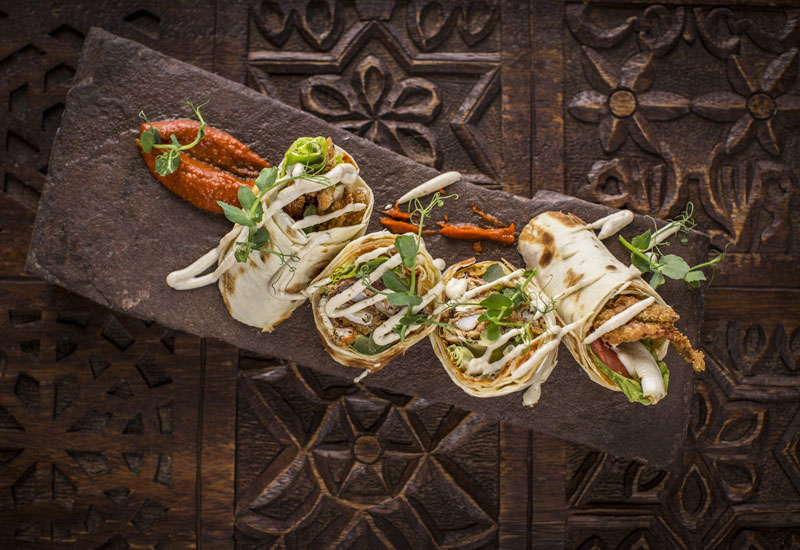 Arabic chefs: keeping original ingredients and authentic flavours, but creating modern methods of presentation to keep things fresh and interesting.
Arabic chefs: keeping original ingredients and authentic flavours, but creating modern methods of presentation to keep things fresh and interesting.
What trends have you observed in the cooking and presentation of Middle Eastern cuisine in recent months, and what do you predict for 2016 for the cuisine?
Razzouk: With the UN’s declaration of 2016 as the International Year of Pulses, we anticipate an upswing in demand for certain Lebanese dishes and the emergence of hummus as a superfood.
Al Shamali: I feel that chefs are taking a more modern approach to Arabic dishes as well as experimenting with fusions of different cuisines with Arabic cuisine. While it is on the rise I do feel that sometimes people can overlook a fundamental but basic point — the Arabic taste.
Ismail: Ouzi, camel and local sweets are growing in popularity, and we expect this trend to continue in 2016.
Saleh: We expect that the presentation of Levantine cuisine will become more theatrical, as restaurants are constantly competing to present more innovative and unique concepts that can be reflected in the serving of the plates.
Meet the Experts
Wafaei Al Zaham, Arabic chef du cuisine, Atayeb, Yas Viceroy Abu Dhabi
Michel Aramouni, founder and owner, Boubouffe Lebanese Brasserie
George Razzouk, executive chef, Kababji UAE
Mohannad Al Shamali, head chef, Qbara
Ahmed Ismail, executive chef, Royal Catering
Bilal Saleh, head chef, Olea Restaurant, Kempinski Hotel Mall of the Emirates

| Advertisement |








 Search our database of more than 2,700 industry companies
Search our database of more than 2,700 industry companies









